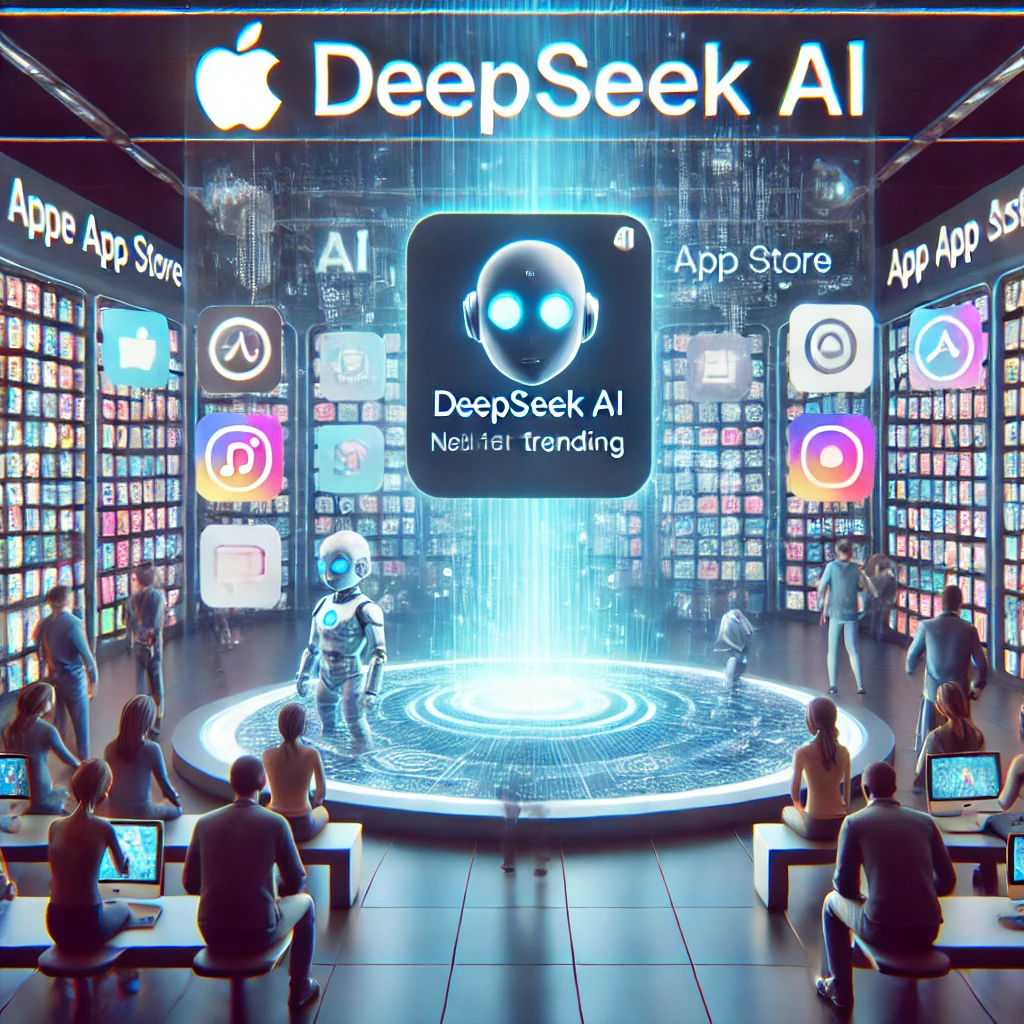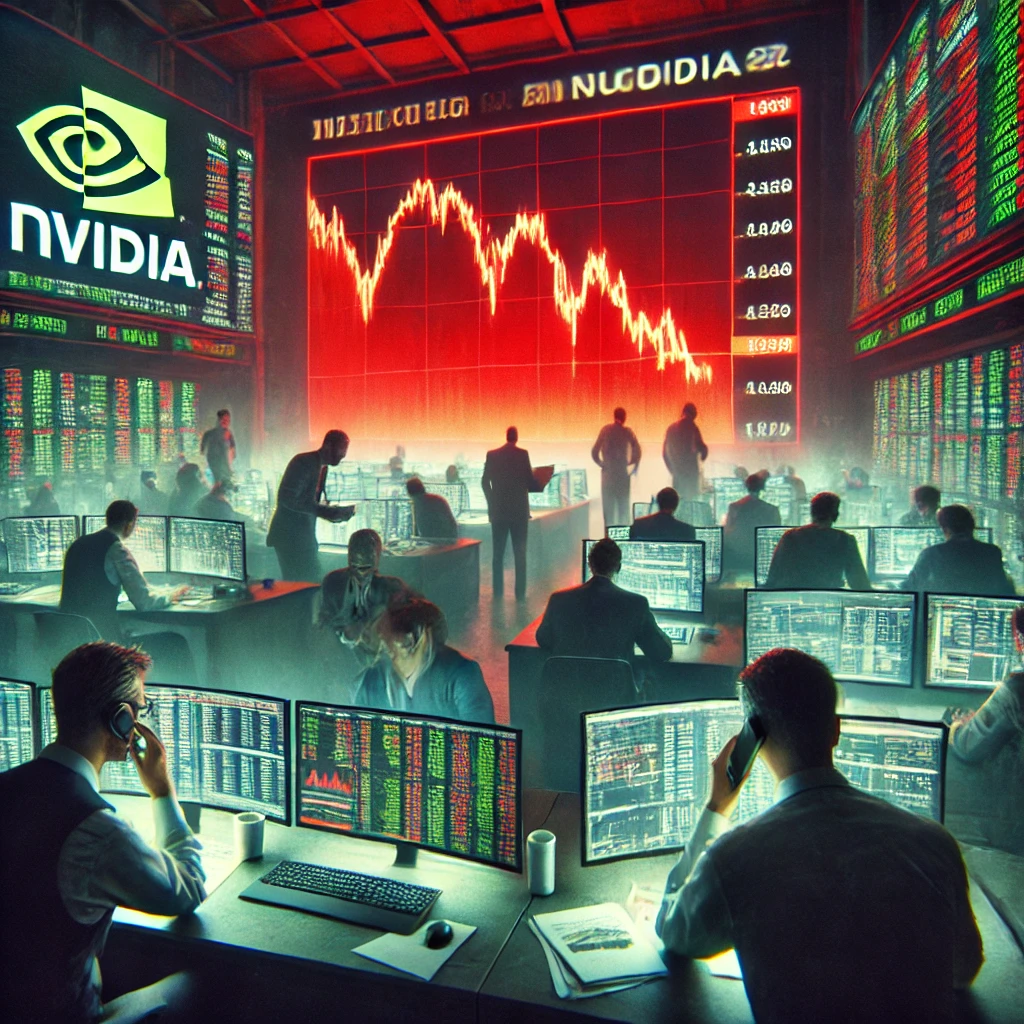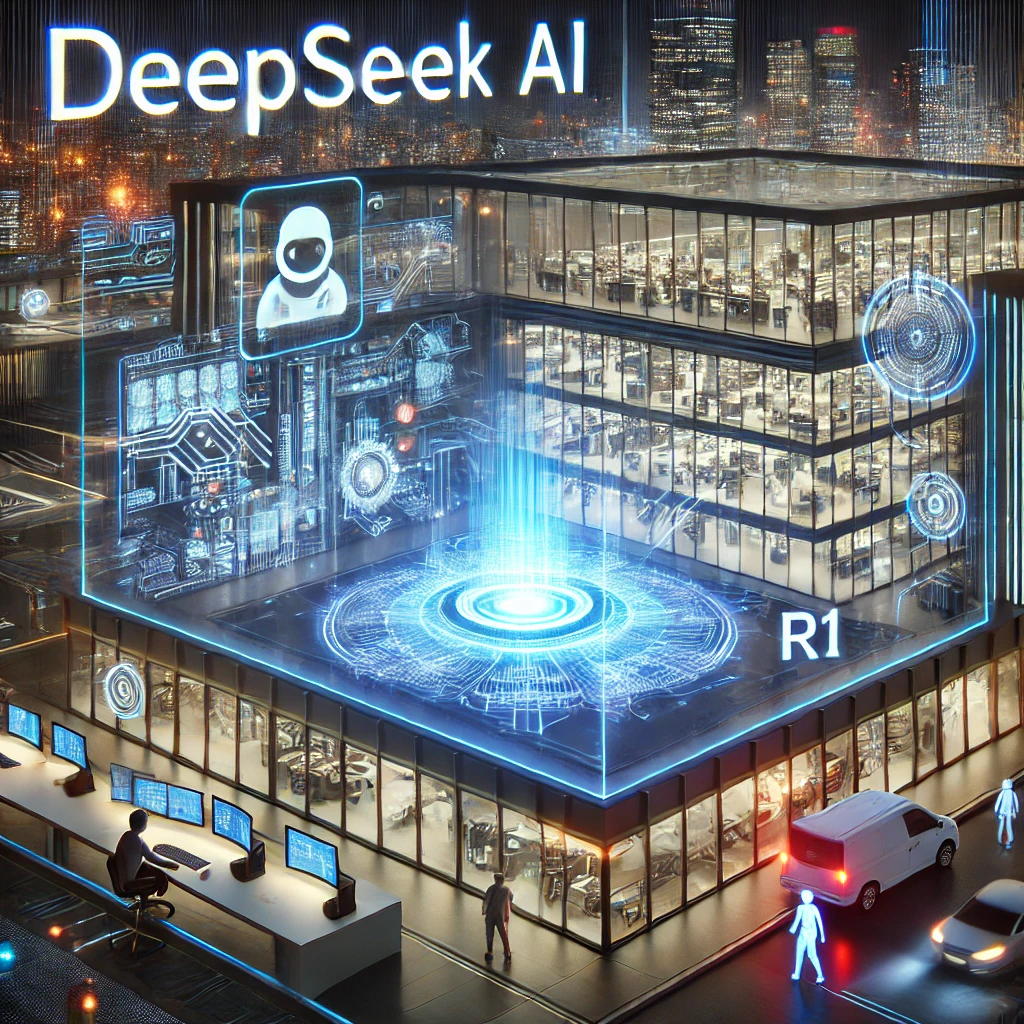DeepSeek, a Chinese AI startup founded by former tech executives and AI researchers, has launched a free AI assistant app that has rapidly become the most downloaded app on Apple’s App Store in the United States, surpassing OpenAI’s ChatGPT. This marks a significant moment in the ongoing Open AI war of China US.

The Ongoing Open AI War of China US
This achievement has not only intensified the AI rivalry between China and the U.S. in the Open AI war of China US but also sent ripples through global financial markets. DeepSeek’s AI assistant, built upon its open-source R1 reasoning model, offers capabilities comparable to leading AI models but at a fraction of the development cost. Notably, the R1 model was developed with an investment of just $6 million, significantly lower than the estimated $5 billion spent on developing ChatGPT. This cost-efficiency has been attributed to DeepSeek’s innovative approach, which minimizes reliance on expensive AI processors.
The app’s swift rise in popularity has had immediate financial repercussions. Nvidia, a major supplier of AI chips, experienced a historic market loss of approximately $589 billion, or 17% of its value, following DeepSeek’s launch. This downturn reflects investor concerns that companies may no longer need high-cost Nvidia chips to develop advanced AI systems, given DeepSeek’s success with more cost-effective alternatives.
However, DeepSeek’s AI assistant has faced scrutiny over its responses to sensitive topics. When queried about issues such as human rights in China and the status of Taiwan, the AI’s answers closely aligned with official Chinese narratives or avoided the topics altogether, highlighting concerns about potential censorship and the influence of regulatory environments on AI outputs.
The emergence of DeepSeek has prompted a reevaluation of the global AI landscape. Analysts are debating the future demand for AI infrastructure and the potential for more accessible, commoditized hardware solutions. SAP CEO Christian Klein views this development as positive for enterprise software, suggesting it could reduce hardware costs and benefit companies like SAP.

Comparison Between DeepSeek and ChatGPT
| Feature | DeepSeek AI | ChatGPT (OpenAI) |
|---|---|---|
| Developer | DeepSeek (Chinese AI startup) | OpenAI (U.S.-based) |
| Model | DeepSeek R1 (open-source) | GPT-4 (proprietary) |
| Training Cost | ~$6 million | ~$5 billion |
| Computational Efficiency | Optimized for cost-effectiveness, requiring fewer high-end AI chips | Requires high-performance GPUs, mainly from Nvidia |
| Accessibility | Free for all users | Free (GPT-3.5), paid access for GPT-4 (ChatGPT Plus: $20/month) |
| App Store Availability | Available on Apple App Store | Available on Apple App Store and web |
| Language Understanding | Strong in Chinese, optimized for specific queries | Strong in English and multiple languages |
| Censorship & Bias | Aligns with Chinese government policies, restricts certain political topics | Aligns with OpenAI’s policies, but allows broader discussions |
| Market Impact | Contributed to Nvidia’s stock decline by reducing reliance on expensive GPUs | Significant in AI industry but reliant on expensive chips |
| Enterprise Use | Emerging interest due to cost efficiency | Widely used in enterprises for AI applications |
| Open-Source Availability | Yes (R1 Model) | No (Proprietary) |
Key Differences & Takeaways
- Cost & Efficiency: DeepSeek AI offers a cheaper, more hardware-efficient alternative to ChatGPT, potentially disrupting the AI market.
- Access & Availability: While ChatGPT has a paid version for premium access, DeepSeek AI is entirely free.
- Censorship & Regulation: DeepSeek AI’s responses are aligned with Chinese regulations, while ChatGPT is influenced by OpenAI’s policies but allows more open discussions.
- Market Impact: DeepSeek AI has caused financial shifts, including a significant drop in Nvidia’s stock value.
DeepSeek’s AI assistant has raised concerns due to its alignment with official Chinese narratives and its avoidance of sensitive topics like human rights in China and the status of Taiwan. This has sparked discussions about censorship and the impact of regulatory environments on AI outputs. The emergence of DeepSeek has also led to debates about the future demand for AI infrastructure and the potential benefits of more accessible hardware solutions. SAP CEO Christian Klein sees this as an opportunity to reduce hardware costs and benefit enterprise software companies like SAP.
DeepSeek’s AI assistant has faced criticism for its alignment with official Chinese narratives and avoidance of sensitive topics, raising concerns about censorship and regulatory influence. In contrast, ChatGPT offers a more open and diverse range of responses, making it a preferred choice for those seeking unbiased and unrestricted AI interactions.
